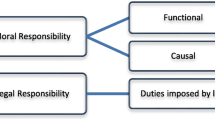Abstract
This article argues that the extension of the international regime of human rights to companies has not changed the essentially state-centric nature of the regime. The analysis focuses on three recent United Nations initiatives: (1) ‘Norms on the Responsibilities of Transnational Corporations and Other Business Enterprises with Regard to Human Rights’, (2) the Global Compact, and (3) the work of the UN special representative on business and human rights. The analysis shows that, despite these initiatives, states are the primary holders of human rights obligations and have a key role in the decision making and enforcement of the regime. Companies have participated to the regime, but they have done so mainly through lobbying governments and thus enforcing the role of states. The analysis also shows that the engagement of new actors to decision-making about the extension of regime norms is essential for norm adoption. Finally, the issue of non-compliant companies needs to be resolved before the regime can be considered established.
Similar content being viewed by others
References
Beyond Voluntarism: 2002, Beyond Voluntarism: Human Rights and the Developing International Legal Obligations of Companies, International Council on Human Rights Policy, Switzerland, Versoix.
BLIHR (Business Leaders Initiative on Human Rights): 2004, Report 2: Work in Progress (BLIHR, London)
BLIHR (Business Leaders Initiative on Human Rights): 2006, Report 3: Towards a Common Framework on Business and Human Rights: Identifying Components (BLIHR, London)
Breitmeier, H., Young, O. R. and Zürn, M.: 2006, Analyzing International Environmental Regimes: From Case Study to Database (The MIT Press, Cambridge, MA).
Brown, C.: 2001, Understanding International Relations (Palgrave Macmillan, Basingstoke).
Clapham, A.: 2006, Human Rights Obligations of Non-State Actors (Oxford University Press, Oxford).
Cragg, W.: 2000, ‘Human Rights and Ethics: Fashioning a New Social Contract’, Journal of Business Ethics 27(1/2), 205-214.
Donnelly, J.: 1986, ‘International Human Rights: A Regime Analysis’, International Organization 40(3), 599-642.
Donnelly, J.: 2003, Universal Human Rights in Theory and Practice, 2nd edition (Cornell University Press, London).
Global Compact: 2007, UN Global Compact Annual Review, United Nations Global Compact Office, New York.
Haufler, V.: 2000, ‘Private Sector International Regimes’, in R. A. Higgott, G. R. D. Underhill and A. Bieler (eds.), Non-State Actors and Authority in the Global System (Routledge, London and New York), pp. 121-137.
Jerbi, S.: 2009, ‘Business and Human Rights at the UN: What might Happen Next? Human Rights Quarterly 31(2), 299-320.
Joseph, S.: 2000, ‘An Overview of the Human Rights Accountability of Multinational Enterprises’, in M. T. Kamminga, and S. Zia-Zarifi (eds.), Liability of Multinational Corporations under International Law (Kluwer Law Publishers, The Hague), pp. 75-93.
Jungk, M.: 1999, ‘A Practical Guide to Addressing Human Rights Concerns for Companies Operating Abroad’, in M. Addo (ed.), Human Rights Standards and the Responsibility of Transnational Corporations (Kluwer Law Intl., The Hague), pp. 171-186.
Kell, G.: 2005, ‘The Global Compact: Selected Experiences and Reflections’, Journal of Business Ethics 59(1-2), 69-79.
Kell, G. and D. Levin: 2002, ‘The Evolution of the Global Compact Network: An Historic Experiment in Learning and Action’, Paper Presented at the Academy of Management Annual Conference (Denver, 11–14 August 2002)
Keohane, R. O.: 1982, ‘The Demand for International Regimes’, International Organization 36(2), 325-355.
Kinley, D. and R. Chambers: 2006, ‘The UN Human Rights Norms for Corporations: The Private Implications of Public International Law’, Human Rights Law Review 6(3), 447-497.
Krasner, S.: 1982, ‘Structural Causes and Regime Consequences: Regimes as Intervening Variables’, International Organization 36(2), 185-205.
Muchlinski, P. T.: 1999, Multinational Enterprises and the Law (Blackwell Publishers, Oxford).
Muchlinski, P. T.: 2001, ‘Human Rights and Multinationals: Is There a Problem?’, International Affairs 77(1), 31-47.
Nickel, J. W.: 2002, ‘Is Today’s International Human Rights System a Global Governance Regime?’, The Journal of Ethics 6(44), 353-371.
Ratner, S.: 2001, ‘Corporations and Human Rights: A Theory of Legal Responsibility’, Yale Law Journal 111(3), 443-545.
Risse, T.: 2006, ‘Transnational Governance and Legitimacy’, in A. Benz and Y. Papadopoulos (eds.), Governance and Democracy: Comparing National, European and International Experiences (Routledge, London), pp. 179-199.
Ruggie, J.: 2004, ‘Reconstituting the Global Public Domain – Issues, Actors, and Practices’, European Journal of International Relations 10(4), 499-531.
Ruggie, J.: 2006, Interim Report of the Secretary-General’s Special Representative on the Issue of Human Rights and Transnational Corporations and Other Business Enterprises, U.N. Doc E/CN.4/2006/97 (February 2006)
Ruggie, J.: 2008, ‘Protect, Respect and Remedy: A Framework for Business and Human Rights’, Report of the Special Representative of the Secretary-General On the Issue of Human Rights and Transnational Corporations and Other Business Enterprises, U.N. Doc A/HRC/8/5 (7 April 2008)
Ruggie, J.: 2009, ‘Business and Human Rights: Towards Operationalizing the “Protect, Respect, and Remedy” Framework’, Report of the Special Representative of the Secretary-General On the Issue of Human Rights and Transnational Corporations and Other Business Enterprises, U.N. Doc A/HRC/11/13 (22 April 2009)
Spar, D. L.: 1999, ‘Foreign Investment and Human Rights’, Challenge 42(1), 55-80.
Weissbrodt, D. and M. Kruger: 2003, ‘Norms on the Responsibilities of Transnational Corporations and other Business Enterprises with regard to Human Rights’, The American Journal of International Law 97(4), 901-922.
Weissbrodt, D. and M. Kruger: 2005, ‘Human Rights Responsibilities of Businesses as non-State Actors’, in P. Alston (ed.), Non-State Actors and Human Rights (Oxford University Press, Oxford), pp. 315-351.
Williams, O. F.: 2004, ‘The UN Global Compact: The Challenge and the Promise’, Business Ethics Quarterly 14(4), 278-286.
Author information
Authors and Affiliations
Corresponding author
Additional information
Nina Seppala has formerly worked for the United Nations and International IDEA and is now lecturer at University College London.
Rights and permissions
About this article
Cite this article
Seppala, N. Business and the International Human Rights Regime: A Comparison of UN Initiatives. J Bus Ethics 87 (Suppl 2), 401–417 (2009). https://doi.org/10.1007/s10551-009-0297-4
Published:
Issue Date:
DOI: https://doi.org/10.1007/s10551-009-0297-4




